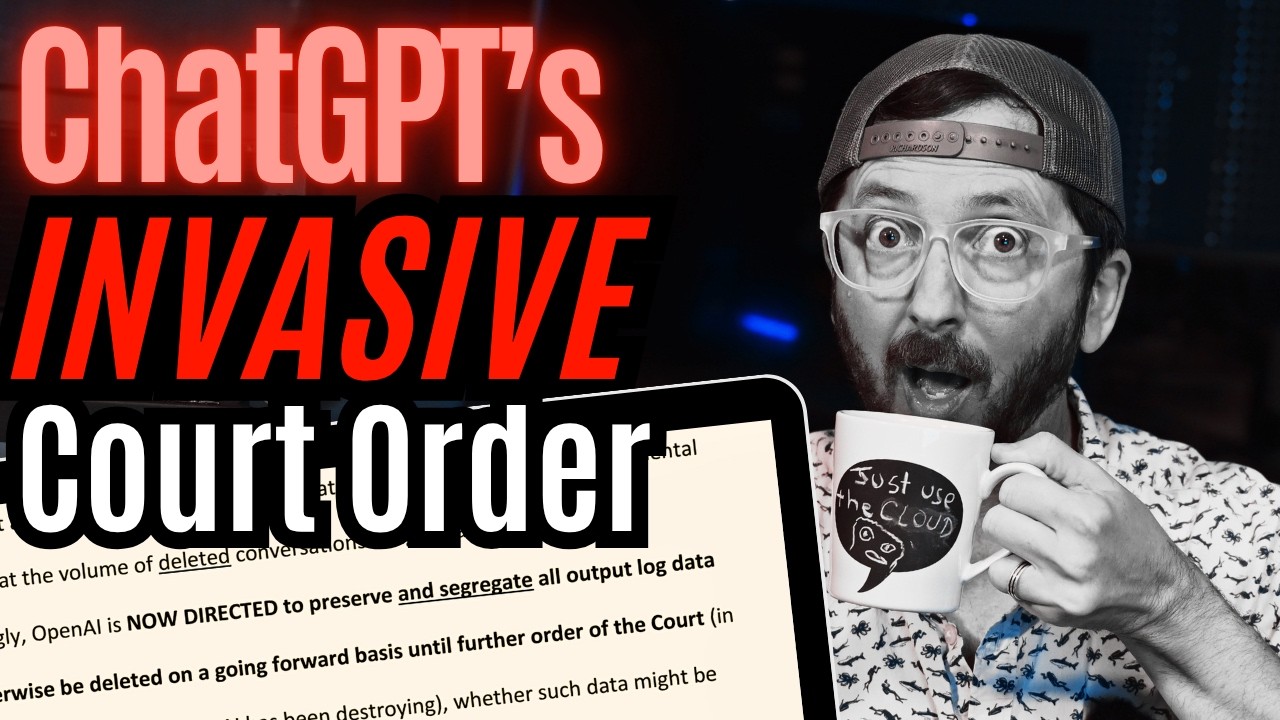The video warns that a recent court order requires OpenAI to preserve all user chat data, including private conversations, raising significant privacy concerns and highlighting a lack of transparency from the company. It advocates for using local AI models as a safer alternative to protect personal data and emphasizes the importance of understanding licensing and privacy risks in AI usage.
The video discusses a recent court order related to OpenAI that mandates the preservation of all user chat data, including private and potentially sensitive conversations, dating back to May 13, 2025. This order is part of a copyright case involving the New York Times, and it requires OpenAI to retain all output logs, even those users believed to have been deleted. The speaker emphasizes the privacy implications of this order, highlighting how it could expose personal and confidential information, and raises concerns about how such data might be scrutinized or misused, especially given the global reach of OpenAI’s user base.
The speaker criticizes OpenAI for not proactively informing users about this court order, noting that the company has not issued clear communication or notifications about the preservation requirement. Instead, many users learned about it through news articles and hacker news, which undermines trust and transparency. The lack of upfront disclosure is seen as a PR issue and a breach of user trust, especially since knowing about such data preservation is crucial for users to understand the privacy risks involved in sharing sensitive information with AI services.
The video explores the broader legal and privacy implications of this court order, comparing it to past cases like Google Books, which set precedents for how transformative use and copyright law intersect with AI training data. The speaker discusses how the outcome of this case could influence future legal standards for AI data handling, especially regarding whether transformed outputs that heavily compete with original copyrighted works are protected or subject to restrictions. The case could have significant ramifications for how AI companies source, use, and share data, and for the privacy rights of users worldwide.
The speaker advocates for using local AI models as a safer alternative to cloud-based services, citing the recent court order as a wake-up call about the risks of entrusting sensitive data to cloud providers. They highlight various tools and guides for setting up local AI systems, emphasizing that local models can offer comparable capabilities while providing better control over data privacy. The importance of understanding licensing terms and being cautious about data sharing on social platforms is also stressed, as these can impact how data is used in AI training and outputs.
In conclusion, the video underscores the importance of privacy, transparency, and control in AI usage, urging viewers to consider local AI solutions to safeguard their data. The speaker warns that the current legal developments could reshape the landscape of AI data handling and privacy rights, especially with potential conflicts between US court orders and EU privacy laws. They call for greater awareness and proactive measures, such as backing up data and understanding licensing agreements, to protect oneself in this evolving environment. The overall message is a warning to be cautious and informed about the risks associated with cloud AI services and a recommendation to explore local AI options for better privacy and security.
